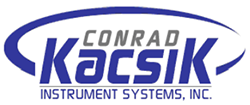The Importance of Quality Management in Heat Treating
In heat treatment, the strength, durability and performance of critical components depend on tightly controlled processes that leave no room for error. A strong quality management system (QMS) is a key part of ensuring that those processes are followed and work as intended, giving you consistent, repeatable results while boosting efficiency. On top of that, these systems are required to satisfy various industry standards, certifications, and regulations like Nadcap.
In this article, we are going to explore why quality management is so crucial for thermal processing. We’ll also talk about some of the components of a strong QMS and how Conrad Kacsik may be able to help your organization get your quality control measures in line with the best in the industry.
Why Quality Control Matters
In the demanding world of heat treating and thermal processing, quality control is the foundation of profitability and compliance. Whether working with aerospace, medical, or automotive components, manufacturers must ensure that every part meets rigorous industry standards like Nadcap or AMS2750. But quality control does more than safeguard against non-conformance—it protects your reputation and optimizes production efficiency.
When quality management systems are robust, they reduce downtime, prevent costly rework and help you stay audit-ready. Without them? Even minor errors in thermal processing can compromise material integrity, leading to failures that can ripple across your entire operation.
Quality management is not a single person’s responsibility, but instead lies across all levels of the organization from front-line operators to managers and engineers. Getting your entire team aligned under a strong QMS should be one of the highest priorities for any organization that has heat treatment operations.
Key Elements of Quality Management in Heat Treating
In general, there are three areas that you should pay attention to when it comes to heat treatment.
1. Equipment Calibration & Maintenance
Your thermal processing equipment is only as reliable as the calibration and maintenance program supporting it. Regular instrument calibrations ensure that furnaces and controls operate within specified parameters.Neglecting this can lead to out-of-tolerance conditions, causing products to fall outside customer or industry requirements.
Key components:
- ISO/IEC 17025-accredited calibrations: This level of calibration meets the strict requirements of standards like AMS2750, ensuring traceability and accuracy.
- Preventive maintenance schedules: Routine maintenance of furnaces, sensors and control systems prevents unexpected downtime and equipment drift that could cause non-conformance.
- System health monitoring: Tools like SCADA systems enhance calibration programs by continuously monitoring equipment health and alerting operators to deviations before they escalate.
2. System Accuracy & Uniformity Testing
Precision in thermal processing depends on more than just calibrated instruments. System Accuracy Testing (SAT) and Temperature Uniformity Surveys (TUS) verify that your equipment performs as expected under real operating conditions, ensuring heat is applied evenly and accurately across every load.
Key components:
- System Accuracy Tests (SAT): Validate that temperature sensors and instruments work together within acceptable tolerances.
- Temperature Uniformity Surveys (TUS): Measure temperature variations across the furnace’s work zone to ensure consistent heating throughout the load. This is critical in preventing hot or cold spots that can lead to non-conforming parts.
- Corrective actions: If a TUS or SAT uncovers inconsistencies, procedures must be in place for immediate corrective action—whether recalibrating equipment or adjusting processes.
3. Documentation & Process Control
Documentation is the backbone of any quality management system. It ensures consistency, provides traceability and makes audits easier to navigate. Without clear, up-to-date procedures, even the best-trained operators can miss critical steps.
Key components:
- Internal procedures and work instructions: These must align with both customer specifications and industry standards. They guide operators through the heat-treat process, ensuring every step is repeatable and verifiable.
- Change control: Procedures must evolve as specifications or requirements change. Regular reviews and updates ensure your documentation reflects the current state of your operations.
- Operator training: Effective process control hinges on well-trained personnel. Training should be ongoing, specific to your internal procedures (not just broad industry standards), and refreshed whenever documentation changes.
Quality Management Keeps You Ready For An Audit
Audits—whether Nadcap, AMS2750, or other regulatory assessments—can be extremely comprehensive and daunting. However, if you have a strong quality management system, audit readiness becomes a natural byproduct of how you operate every day.
In other words, rather than rushing to prepare when an audit is scheduled, effective quality management means you’re always ready. A strong QMS ensures that:
- Equipment is calibrated and maintained on schedule.
- System accuracy and uniformity tests are current and within tolerance.
- Documentation and training reflect the latest requirements.
This all minimizes the risk of non-conformances, as you’ll be able to address any prior to the audit coming through.
How Conrad Kacsik Helps You Stay Ready
At Conrad Kacsik, we understand that audits are high-stakes moments for manufacturers, especially in industries like aerospace, medical, and automotive. Our approach is designed to keep you ready at all times:
- Accredited calibration and testing services: We ensure your equipment and systems meet standards like AMS2750 and ISO/IEC 17025.
- Pre-audit consulting and gap analysis: We work with your team to identify and address issues long before the auditor walks through the door.
- Documentation and training support: From developing procedures to delivering operator training, we help make sure your team is aligned with the latest standards.
With over 40 years of experience, we know what it takes to not only pass an audit—but to thrive under scrutiny. Contact Conrad Kacsik today to learn how we can help you stay ahead of requirements and focus on what matters most.







